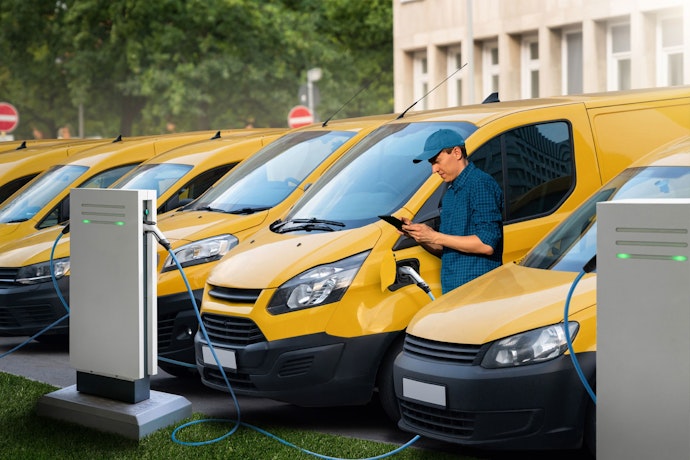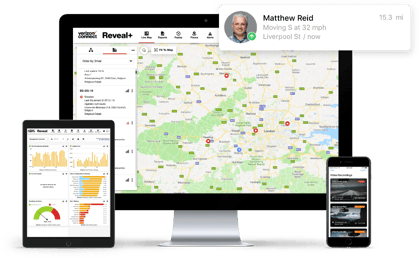2025 Fleet Technology Trends Report Europe
Find out how fleet management technologies can help improve the bottom line of your business.
Read more
Sustainability has become an essential pillar of a company's competitiveness and reputation. Sustainable companies and their vehicle fleets have a culture in which their activities, operations and impact revolve around a "green commitment" that prioritises the reduction of fuel consumption and CO2 emissions into the atmosphere along with efficiency in all their operations.
A commitment to sustainability is increasingly being demanded by not only public agencies but also by the government. In the period 2021 to 2025, the agencies and government departments in the UK will commence reducing their impact on the environment.
This means that the Greening Government Commitments agreed by the UK Government are resolved to achieve clean air through:
For many companies that are focused and committed to reducing the environmental, economic, and social impact of their fleet operations, fleet sustainability is a new standard. Not only does it articulate a company’s core values but it also shows that they aim to be more customer-oriented and meet their needs, making them more competitive.
Here are some ways you can make your fleet more sustainable:
Midsize and large businesses are therefore prioritising their fleet’s sustainability in order to not only be greener, but also more aligned to customers’ expectations in tackling climate change together and by being part of the solution by adopting best practices wherever they can with the help of a fleet management solution.
Learn more about sustainable companies and how to keep your fleet efficient and environmentally friendly and learn how fleet management can help you.
Book a demo today.
Tags: All




Find out how our platform gives you the visibility you need to get more done.
Find out how fleet management technologies can help improve the bottom line of your business.
Read moreFind out how fleet management systems can help fleet managers make their fleets greener and more sustainable.
Read moreCompanies that utilise fleet management software revealed a lot about fleet management trends for 2025. What are they?
Read moreFleet management companies benefit from GPS tracking in their daily business. Here are the main improvements.
Read more